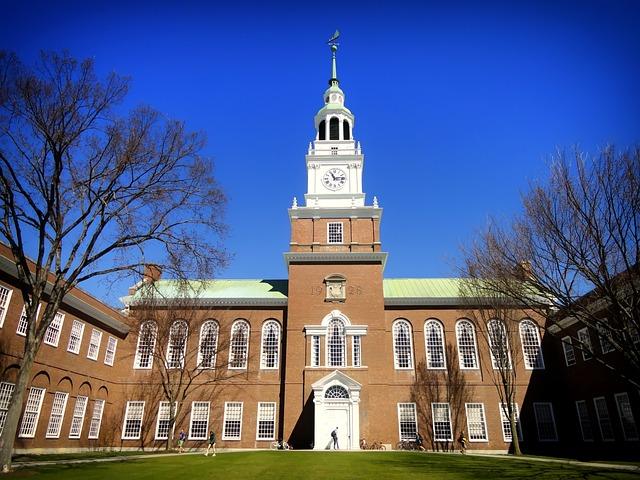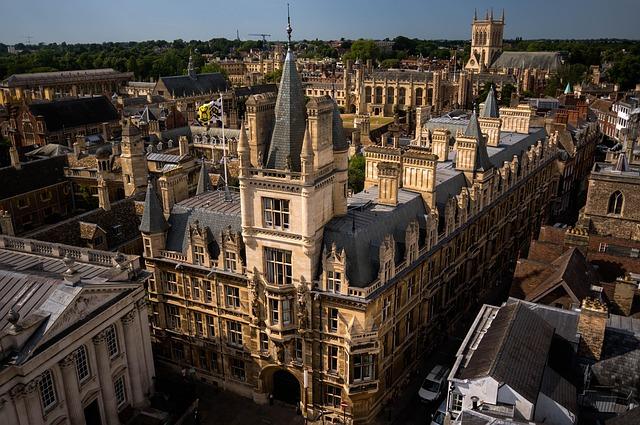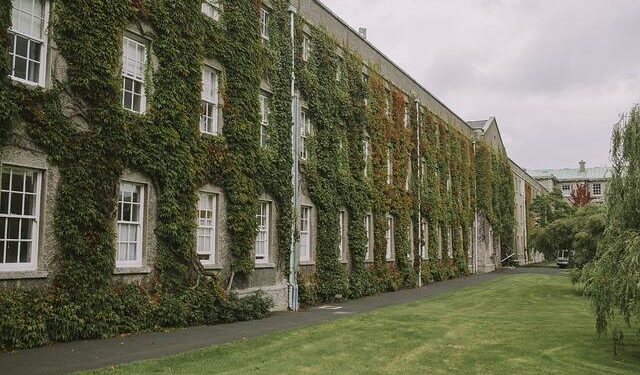In a notable move aimed at addressing the ongoing challenges of affordable housing, Dartmouth College has announced the progress of new staff housing in Lebanon, New Hampshire. This initiative comes in response to the rising demand for accessible living options for university employees, an issue that has garnered attention amid escalating housing costs in the Upper Valley region. The project not only reflects the college’s commitment to supporting its workforce but also highlights the broader housing crisis facing many communities in New England. With plans poised to enhance the quality of life for staff and promote workforce stability, this development marks a hopeful step towards improving Dartmouth’s housing landscape and fostering a more sustainable community for its employees.
Dartmouth College’s Initiative to Alleviate Local Housing Shortages
Dartmouth College has taken a significant step towards addressing the pressing housing shortages in the local community by constructing new staff housing in Lebanon. This enterprising project aims to provide essential accommodations for faculty and staff, ensuring that they have access to affordable living options while contributing to the college’s commitment to community integration. The initiative not only serves the practical purpose of housing but also reflects Dartmouth’s broader mission of fostering stronger relationships with the local population and enhancing the overall quality of life in the region.
Key features of the new housing development include:
- Affordable Housing Options: Designed to be budget-pleasant, making it easier for staff to live near their workplace.
- Community-centric Design: incorporates elements that promote community engagement and cohesion among residents.
- Eco-Friendly Solutions: Implementing sustainable building practices and energy-efficient amenities to reduce the environmental impact.
The project not only represents a commitment to employee welfare but also anticipates a positive ripple effect on the local economy. As professors and administrators settle into these new homes, they are more likely to engage with local businesses, schools, and cultural events, further strengthening the ties between Dartmouth and Lebanon.
| Feature | Description |
|---|---|
| Location | strategically placed within commuting distance to campus. |
| Unit Types | Variety of configurations, catering to singles, couples, and families. |
| Completion Date | Expected to be ready for occupancy by late 2024. |

Design and Sustainability Features of the New staff Housing
The newly constructed staff housing at Dartmouth College in Lebanon showcases a commitment to both cutting-edge design and environmental sustainability. Built with a focus on energy efficiency, the residences feature high-performance insulation and triple-glazed windows, which substantially reduce heating and cooling demands. These sustainable building practices not only lower the carbon footprint of the facility but also enhance the comfort of the residents throughout the year.
Additionally, the housing complex incorporates renewable energy solutions, such as solar panels that supply a portion of the energy needed for common areas. The landscape has also been thoughtfully designed to include native plants, which require minimal irrigation and promote biodiversity. Key sustainability features include:
- Rainwater harvesting systems to minimize water usage
- Energy-efficient appliances in every unit
- Use of reclaimed materials throughout the construction process
- Accessible green spaces encouraging outdoor activities
| Sustainability Feature | description |
|---|---|
| Solar Energy | Reduces reliance on non-renewable sources |
| Native Flora | Enhances local ecology and reduces maintenance |
| Energy-efficient Design | Minimizes energy consumption and costs |

Community Reactions and Impacts on Lebanon’s Housing Market
The proclamation of Dartmouth College’s decision to construct staff housing in Lebanon has sparked a wave of community reactions, reflecting a mixture of excitement and concern among local residents. Supporters argue that the initiative could serve as a boon for the local economy by creating construction jobs and fulfilling housing needs for college staff. They see it as a long-overdue investment that will not only support the college’s mission but also help retain skilled professionals in the area. However, not everyone shares this optimistic view; some community members are apprehensive about the potential impacts on housing availability and affordability for long-term residents. They fear that increased demand driven by the new housing developments could exacerbate an already challenging housing market, putting pressure on existing renters and homeowners.
The ripple effects on Lebanon’s housing market may manifest in several ways, including increased rental rates, higher property values, and a potential shift in demographic patterns as more staff may choose to relocate to be closer to the college. Local real estate agents have begun to note an uptick in inquiries from prospective buyers and renters associated with the college, hinting at a new interest in nearby neighborhoods. As demand grows, the city may need to consider measures to ensure that affordable housing options remain available for the broader community. Stakeholders highlight the importance of monitoring these trends to inform future policies and to strike a balance between the needs of the college and those of the local population.

Financial Implications for Dartmouth and Local Residents
The construction of new staff housing by Dartmouth College in Lebanon promises to have broad financial implications for both the institution and local residents. For Dartmouth College, this initiative is part of a strategic effort to attract and retain top talent by providing affordable living options. This move could lead to a reduction in hiring costs, as employees are less likely to seek alternatives that may require longer commutes or higher living expenses. Additionally, by investing in local real estate, the college is likely to see a positive impact on its operational efficiencies, as staff will be able to work closely with other campus departments and resources. As a result, potential increases in staff productivity and overall job satisfaction may ensue.
For the local community, the implications are multifaceted. The development can contribute to the area’s economy by stimulating local business through increased demand for goods and services as new residents settle in. Coupled with potential increases in property values, property owners may see benefits in their housing investments.However,it is essential to consider potential challenges,such as the increased strain on local infrastructure and resources. Community members may have concerns regarding traffic patterns, access to public services, and the preservation of neighborhood character. balancing these factors will be crucial to ensure that both Dartmouth and the local residents can thrive in a mutually beneficial environment.

Future Plans for Staff Housing Expansions and Improvements
As Dartmouth College continues to prioritize the well-being of its staff, plans are underway for significant expansions and improvements in housing options. Understanding the importance of quality residential facilities in attracting and retaining talent, the college is committed to creating a welcoming environment. Upcoming projects are set to include:
- New Housing Units: Construction of additional units designed to accommodate a diverse range of staff needs.
- Renovations: Upgrades to existing properties to enhance comfort and modern amenities.
- Sustainability Initiatives: Incorporation of eco-friendly materials and solutions to reduce the environmental footprint.
- Community Spaces: Development of communal areas where staff can socialize, collaborate, and relax.
The following table outlines the projected timeline for these developments, providing a snapshot of the improvements that staff can expect in the near future:
| Phase | Description | Expected Completion |
|---|---|---|
| Phase 1 | Initial Planning and Design | Q1 2024 |
| Phase 2 | Groundbreaking and Construction | Q2 2024 |
| Phase 3 | Final Inspections and Open Houses | Q4 2025 |
This strategic approach not only aims to meet the immediate housing demands but also fosters a greater sense of community among staff members. As these enhancements take shape,Dartmouth College fosters an environment that emphasizes collaboration,well-being,and innovation for its employees.

Recommendations for Enhancing Community Integration and Support
To foster greater community integration and support stemming from the new staff housing initiative, Dartmouth College can implement several strategies that encourage active participation from both employees and local residents. Establishing community engagement programs that promote interactions between staff and the Lebanon community through events, workshops, and volunteer opportunities can create a stronger bond. These initiatives could include:
- Monthly community dinners to facilitate informal networking.
- Workshops that share skills between faculty, staff, and community members.
- Volunteer days aimed at local conservation and improvement projects.
Furthermore, a resource-sharing platform can be developed to bridge gaps between the college and the local population. This platform could serve as a hub for details and services, offering easy access to resources like housing assistance, childcare options, and local events. In addition, creating a feedback mechanism would allow community members to share their insights and suggestions on how the college can better support and integrate into the town. A simple table format can be effective for outlining upcoming events and opportunities:
| Event | Date | Location | Details |
|---|---|---|---|
| Community Dinner | First Thursday of each month | Main Campus Dining Hall | Join staff and locals for sharing food and stories. |
| Volunteer Day | Last Saturday of the month | City Park | Help with park clean-up and beautification. |
| Skills Workshop | TBD | Community Center | Learn new skills; share your talents! |
Insights and conclusions
Dartmouth College’s initiative to build staff housing in Lebanon marks a significant step towards addressing the critical housing shortages faced by faculty and staff in the Upper Valley region. This development not only aims to enhance the quality of life for employees but also strengthens the college’s commitment to fostering a sustainable community interconnected with its surrounding environment. As the project progresses, it will be essential to monitor its impact on affordability, accessibility, and the local economy. With these efforts,Dartmouth College sets a precedent for other educational institutions to consider their role in regional housing challenges,ultimately striving to create a more inclusive and supportive environment for all members of the community.

















